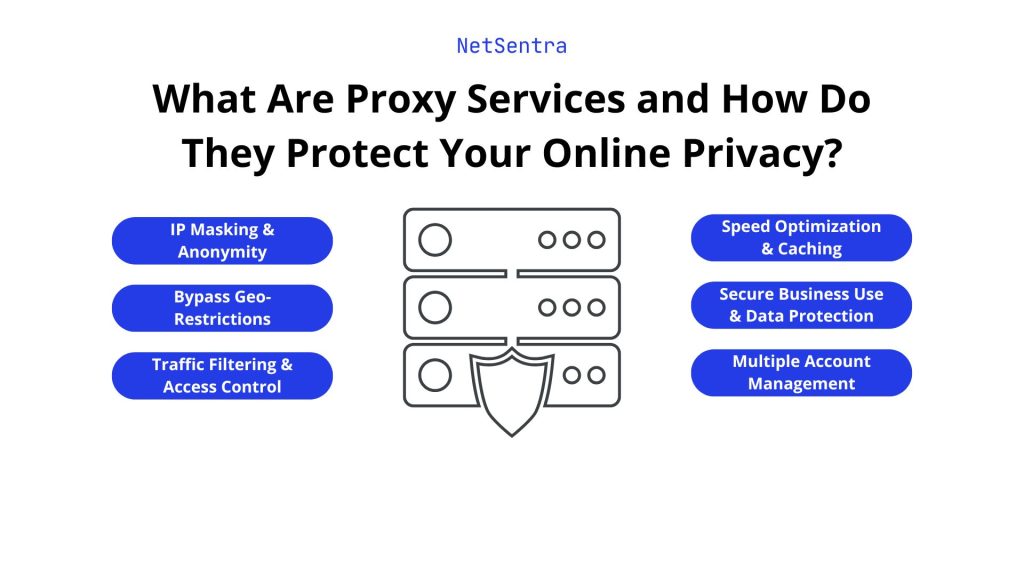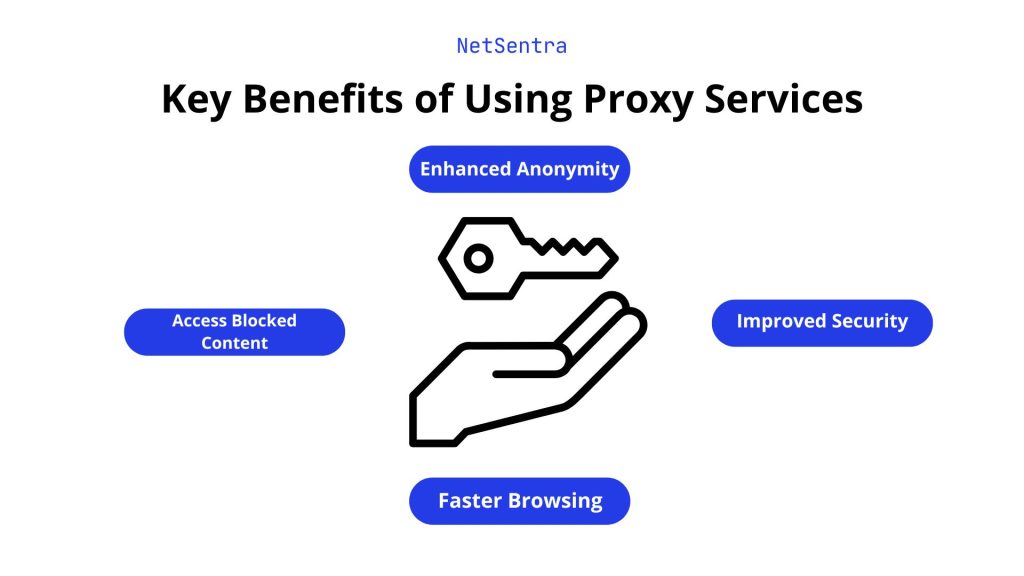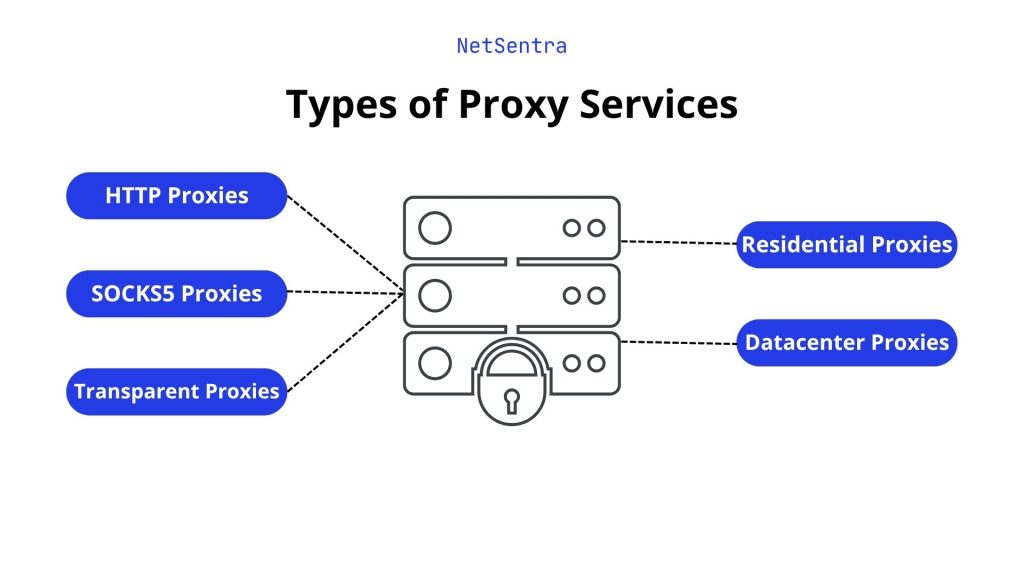In today’s digital world, online privacy is no longer a luxury — it’s a necessity. As we browse, stream, and communicate online, our personal data is constantly being tracked. While VPNs are widely known tools for privacy, proxy services also play a crucial role in protecting your identity and data.

But what exactly are proxy services? And how can they benefit your digital life?
🌐 What Is a Proxy Service?
A proxy acts as a gateway between you and the internet. Instead of your device connecting directly to a website, a proxy server does it on your behalf. This way, the destination site only sees the IP address of the proxy server, not your real one.
🔒 Key Benefits of Using Proxy Services
✅ 1. Enhanced Anonymity
By masking your real IP, proxy services help hide your physical location and prevent websites or advertisers from tracking your online activity.
✅ 2. Access Blocked Content
Many websites and streaming platforms restrict access based on location. Proxies allow you to bypass geo-restrictions, giving you access to content from anywhere in the world.
✅ 3. Improved Security
Proxies can filter traffic and block malicious websites before they reach your device. In business environments, they’re often used to prevent data leaks and enforce usage policies.
✅ 4. Faster Browsing (in some cases)
Some proxies cache frequently visited websites, allowing for faster load times and reduced bandwidth usage.

🛠️ Types of Proxy Services
There are several types of proxies — each serving different needs:
- HTTP Proxies – Ideal for browsing websites.
- SOCKS5 Proxies – More flexible, supports different traffic types (including torrents and games).
- Transparent Proxies – Used mostly by businesses for content filtering.
- Residential Proxies – Use real IPs from internet service providers for greater anonymity.
- Datacenter Proxies – Fast and affordable, but easier to detect.

🆚 Proxy vs VPN — What’s the Difference?
While both proxies and VPNs mask your IP, VPNs offer end-to-end encryption, meaning your traffic is secure even from your ISP. Proxies typically don’t encrypt traffic, making them faster but less secure.
🔐 For full privacy protection, VPNs are generally the better choice — but proxies are great for lightweight tasks like bypassing blocks or scraping data.
💡 Use Cases for Proxy Services
- Unblocking websites at school or work
- Accessing region-specific shopping deals
- Managing multiple social media accounts
- Web scraping & SEO monitoring
- Secure browsing in restricted environments
🧠 Final Thoughts
Proxy services are powerful tools for online freedom and privacy — especially when used wisely. While they don’t replace a VPN for complete protection, they’re incredibly useful for bypassing restrictions, managing traffic, and keeping your identity hidden.
Whether you’re a casual user or a digital professional, understanding how proxies work is an essential step toward taking back control of your online life.
🔗 Explore more on NetSentra:
- 5 Powerful Reasons to Use a VPN in 2025
- What Is Online Privacy and Why It Matters in 2025?
- Cybersecurity Tools: Protecting Your Digital Life in 2025
Stay secure,
NetSentra Team